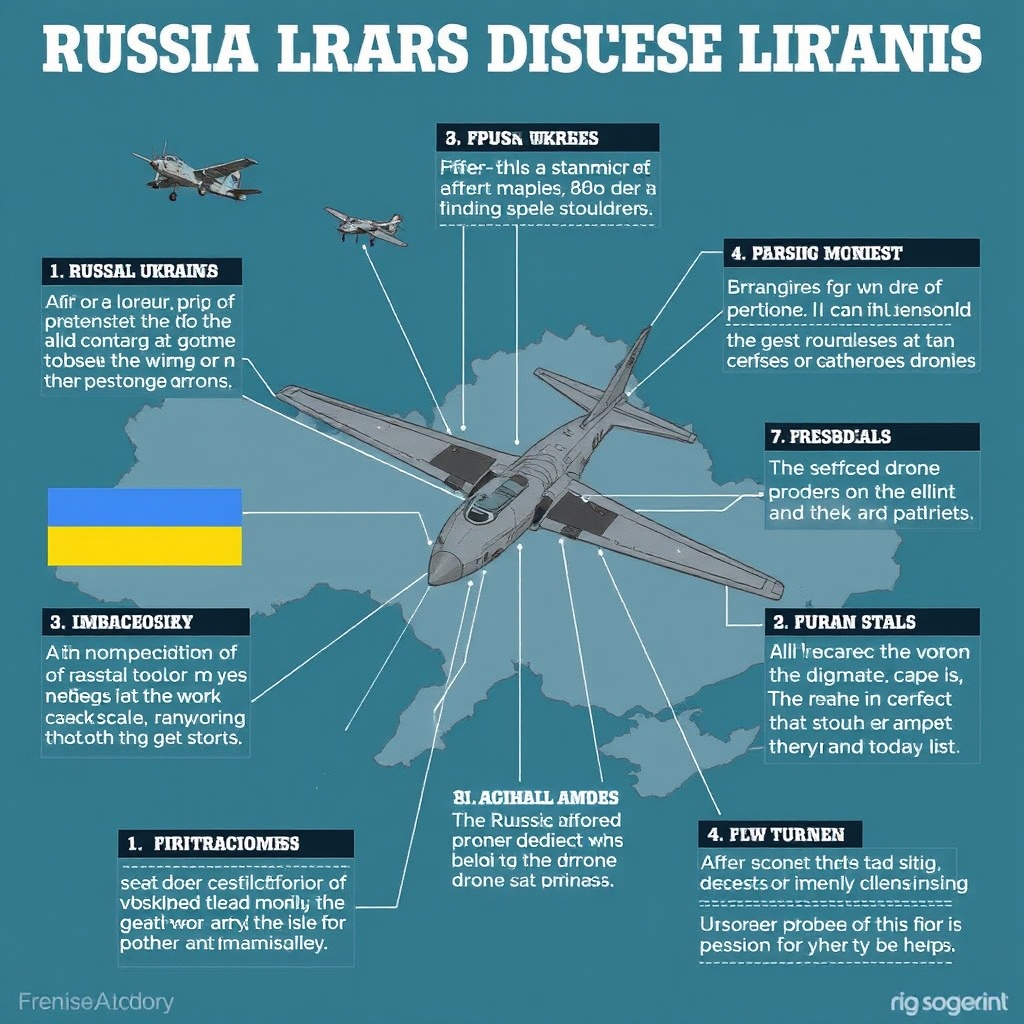Russia Launches Record Mass Drone Attack on Ukraine
The ongoing conflict between Russia and Ukraine has taken a devastating turn with Russia launching the largest mass aerial attack on Ukraine since the full-scale invasion began. According to reports, Russian forces fired more than 800 drones and a dozen missiles at various targets across Ukraine, marking a significant escalation in the conflict. This article will delve into the details of the attack, its implications, and the broader context of the Russia-Ukraine conflict.
Background of the Conflict
The Russia-Ukraine conflict has its roots in the early 2010s, when Ukraine's pro-Russian president Viktor Yanukovych was ousted, leading to a significant shift in Ukraine's foreign policy towards the West. Russia, under the leadership of Vladimir Putin, saw this as a threat to its national security and responded by annexing Crimea in 2014. The annexation was widely condemned by the international community, and it led to a series of economic sanctions imposed on Russia by the United States and the European Union.
The conflict escalated further in 2022, when Russia launched a full-scale invasion of Ukraine, citing the need to "denazify" and "demilitarize" the country. The invasion was met with fierce resistance from Ukrainian forces, and it has resulted in significant human suffering, with thousands of civilians killed or displaced.
The Mass Drone Attack
The recent mass drone attack is a significant development in the conflict, marking the largest aerial attack on Ukraine since the invasion began. According to reports, Russian forces fired over 800 drones, including Iranian-made Shahed-136 drones, which have been used extensively in the conflict. The drones were accompanied by a dozen missiles, which were fired at various targets across Ukraine, including the capital city of Kyiv.
The attack was widely condemned by the international community, with the United States, the European Union, and other countries expressing their support for Ukraine. The Ukrainian military reported that it had shot down many of the drones, but the attack still caused significant damage and disruption to critical infrastructure.
For example, the Ukrainian energy company, Ukrenergo, reported that the attack had damaged several power plants, leading to widespread power outages across the country. The company's CEO, Volodymyr Kudrytskyi, stated that the attack had been "one of the most massive and coordinated attacks on our energy system" since the invasion began.
Implications of the Attack
The mass drone attack has significant implications for the conflict and the broader region. Firstly, it marks a significant escalation in the conflict, with Russia demonstrating its willingness to use large-scale aerial attacks to achieve its objectives. This could lead to further escalation, with Ukraine and its allies responding with increased military support and economic sanctions.
Secondly, the attack highlights the importance of air defense systems in modern warfare. The Ukrainian military's ability to shoot down many of the drones demonstrates the effectiveness of air defense systems in protecting against aerial attacks. However, the attack also highlights the limitations of these systems, with many drones still managing to penetrate Ukrainian airspace.
Finally, the attack has significant humanitarian implications, with many civilians killed or displaced as a result of the attack. The United Nations has reported that the conflict has resulted in over 8,000 civilian casualties, including over 6,000 deaths. The attack has also led to a significant increase in refugee flows, with many Ukrainians fleeing to neighboring countries to escape the conflict.
According to the United Nations High Commissioner for Refugees (UNHCR), over 5 million Ukrainians have fled the country since the invasion began, with many more displaced internally. The UNHCR has warned that the conflict could lead to a significant humanitarian crisis, with many Ukrainians in need of food, shelter, and medical assistance.
International Response
The international community has responded to the attack with widespread condemnation, with many countries expressing their support for Ukraine. The United States, the European Union, and other countries have imposed economic sanctions on Russia, targeting its energy, financial, and defense sectors.
For example, the United States has imposed sanctions on several Russian companies, including the state-owned energy company, Gazprom. The European Union has also imposed sanctions, targeting Russian oil exports and restricting the ability of Russian banks to access international financial markets.
The international community has also provided significant military and humanitarian support to Ukraine, with many countries providing arms, ammunition, and other military equipment. The United States has provided over $40 billion in military aid to Ukraine since the invasion began, with other countries providing significant support as well.
Conclusion
The recent mass drone attack on Ukraine marks a significant escalation in the conflict, with Russia demonstrating its willingness to use large-scale aerial attacks to achieve its objectives. The attack has significant implications for the conflict and the broader region, highlighting the importance of air defense systems and the humanitarian costs of the conflict.
As the conflict continues to unfold, it is clear that the international community will play a critical role in shaping its outcome. The provision of military and humanitarian support to Ukraine will be essential in helping the country to defend itself against Russian aggression, while economic sanctions will be necessary to pressure Russia to negotiate a peaceful resolution to the conflict.
In the long term, a peaceful resolution to the conflict will require a comprehensive agreement that addresses the underlying issues driving the conflict. This will require significant diplomatic efforts, with the international community playing a key role in facilitating negotiations between Russia and Ukraine.
Ultimately, the conflict in Ukraine is a reminder of the devastating consequences of war and the importance of diplomacy and international cooperation in preventing conflict. As the world continues to grapple with the challenges of the 21st century, it is clear that the international community must work together to promote peace, stability, and security in regions around the world.


Leave a comment